When we cycled from Istanbul to Ankara, we first followed the sea for a while before we crossed the mountains separating it from the Central Anatolian Plateau. After passing the highest point of the mountain range, the landscape suddenly changed. Lush mountain forests turned into an almost desert-like plateau with bare soil and colorful rocks. This is what most of the Central Anatolian Plateau looks like nowadays. Spare steppe vegetation with lots of bare soil (actually more dust) and rocks in between, broken up by irrigated fields and residential areas. But in Ankara we learn that this was not always the case. Here, we meet Kuzey Isik, a biology student who is only 20 years old, but has already reforested his hometown of Ankara for 12 years. Kuzey actually contacted us long before and invited us to visit him in Ankara. His email titled “An Aspiring Ecologist from Turkey” immediately intrigued us and meeting him more than fulfilled our expectations.
For Kuzey, it´s all about trees…
Kuzey has found his passion for the native forests of his home region very young in life and has fought for their restoration since his teenage years. Around Ankara and all across the Central Anatolian Plateau, most of the land has been deforested for firewood, livestock grazing and construction. Today, only small patches of relict forests still exist. This is where our journey begins. Kuzey leads the way to a surprisingly challenging bike tour to a relict forest around 20km outside of Ankara. We find hill slopes covered in thin forest dominated by pubescent oaks (Quercus pubescens) that don’t grow higher than a few meters. This is the natural vegetation of Central Anatolia and we can sense that Kuzey feels at home here. He comes here every few months and especially when the acorns are ripe and fall off the trees. His goal is to spread this kind of native forest and for that he needs seeds. So, he collects the acorns by hand, takes them home and breeds little saplings that he can plant in different places around Ankara.



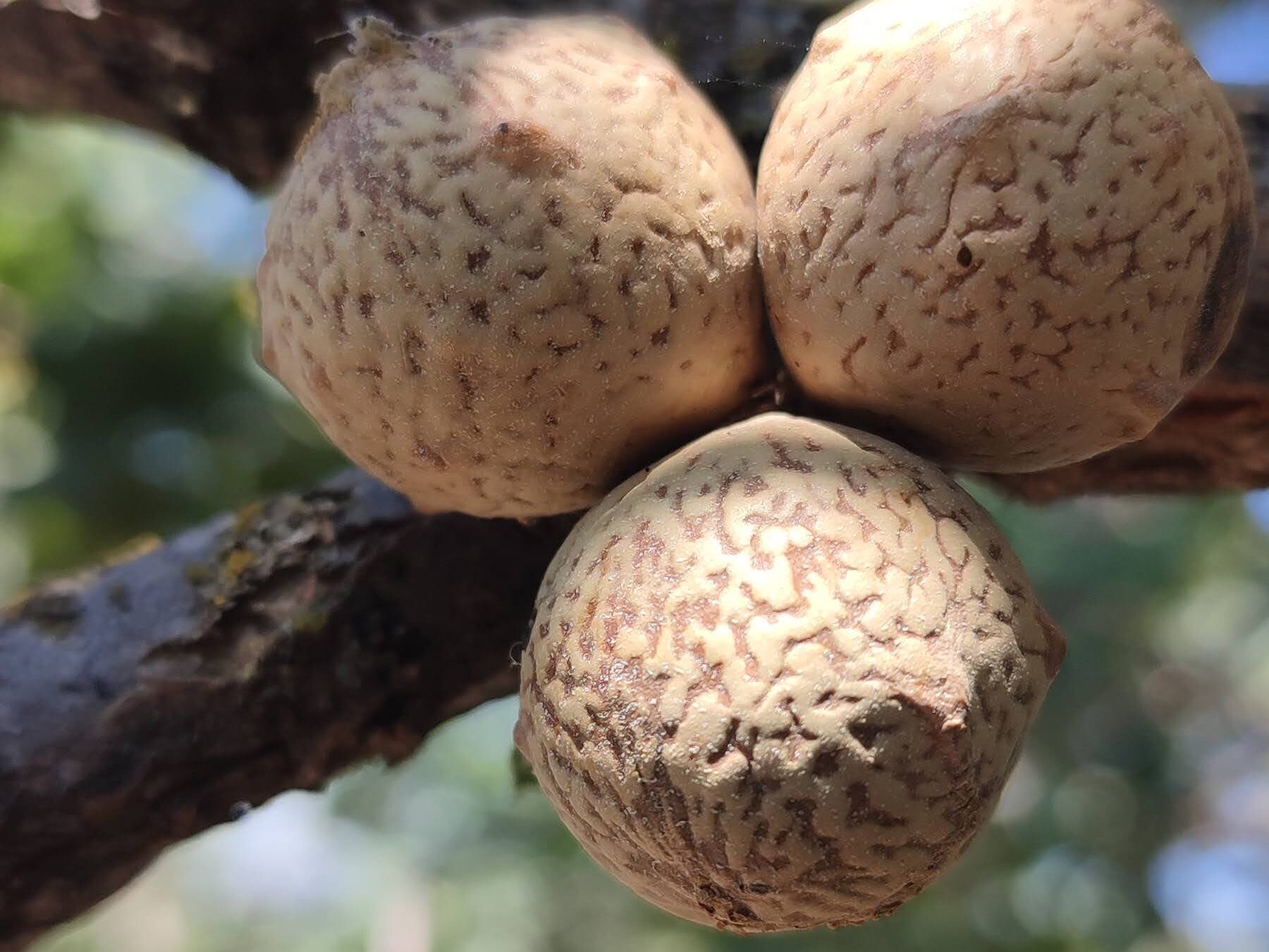
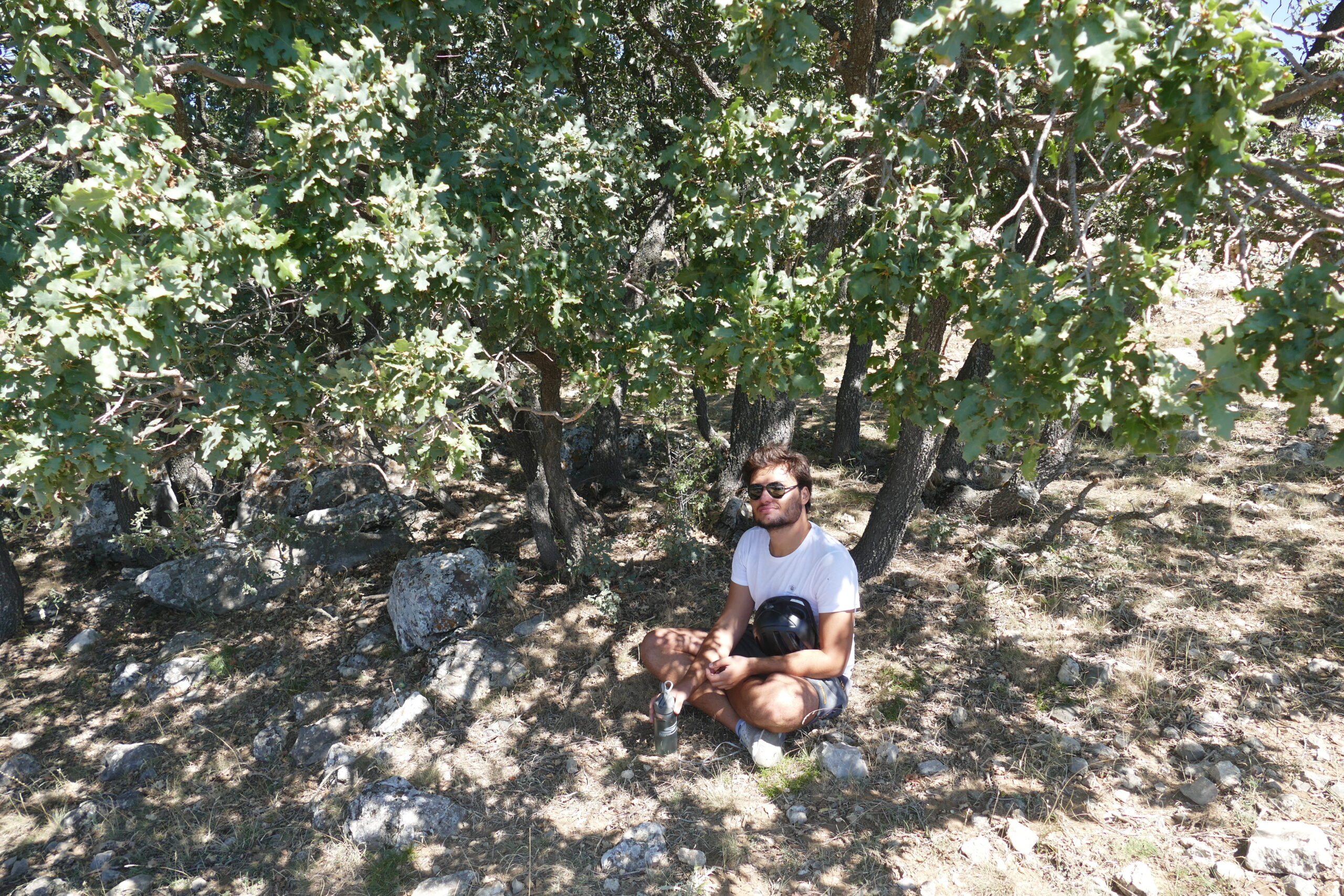

In his home, his passion and dedication become even more obvious. Everywhere we turn, there are all kinds of containers filled with soil and little saplings growing out of it. Kuzey grows pubescent oaks, juniper, wild almonds, wild pears and many more species that are native. In the basement we find his seed bank with carefully treated acorns and other seeds that are waiting in line to be planted.
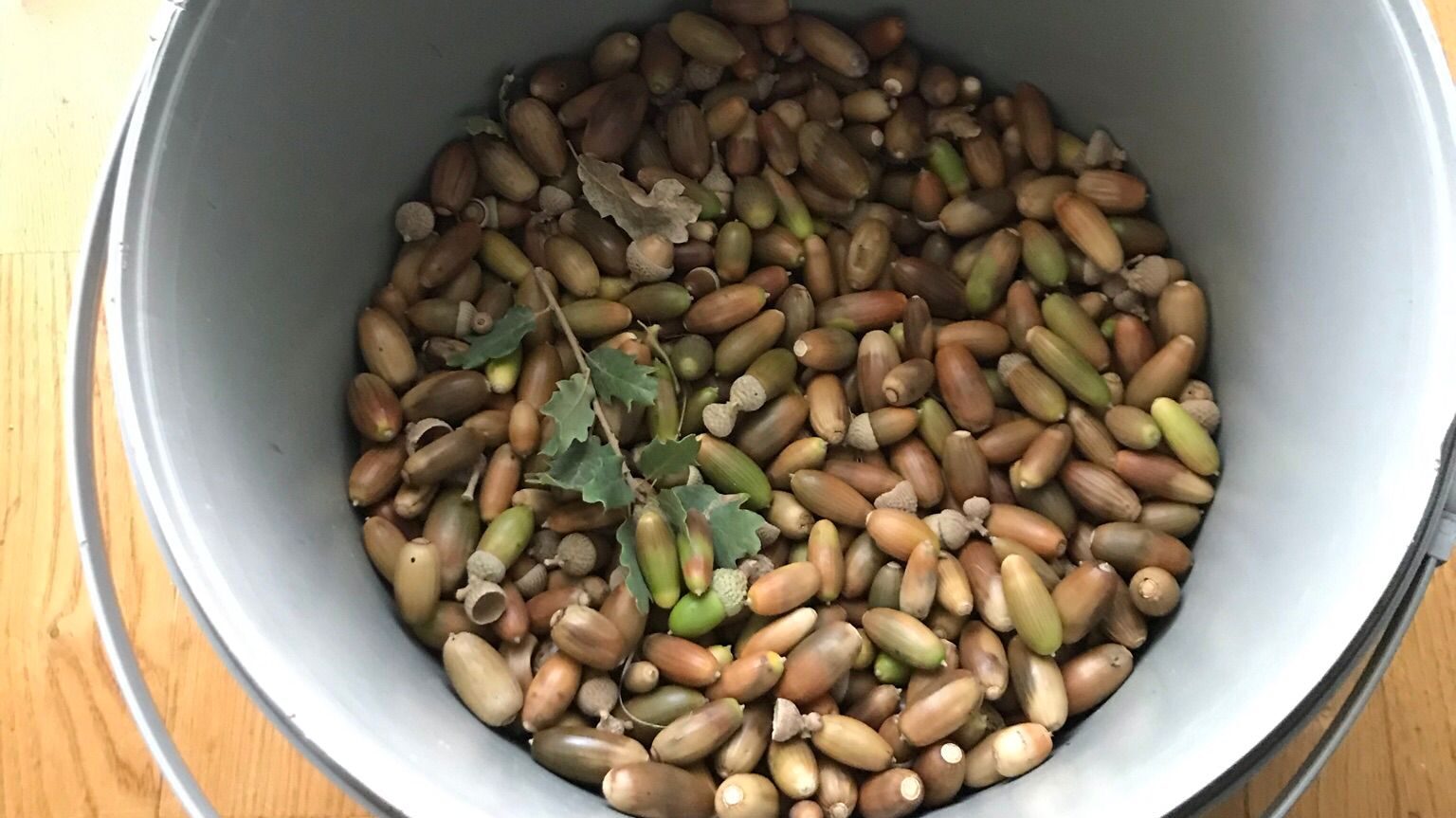

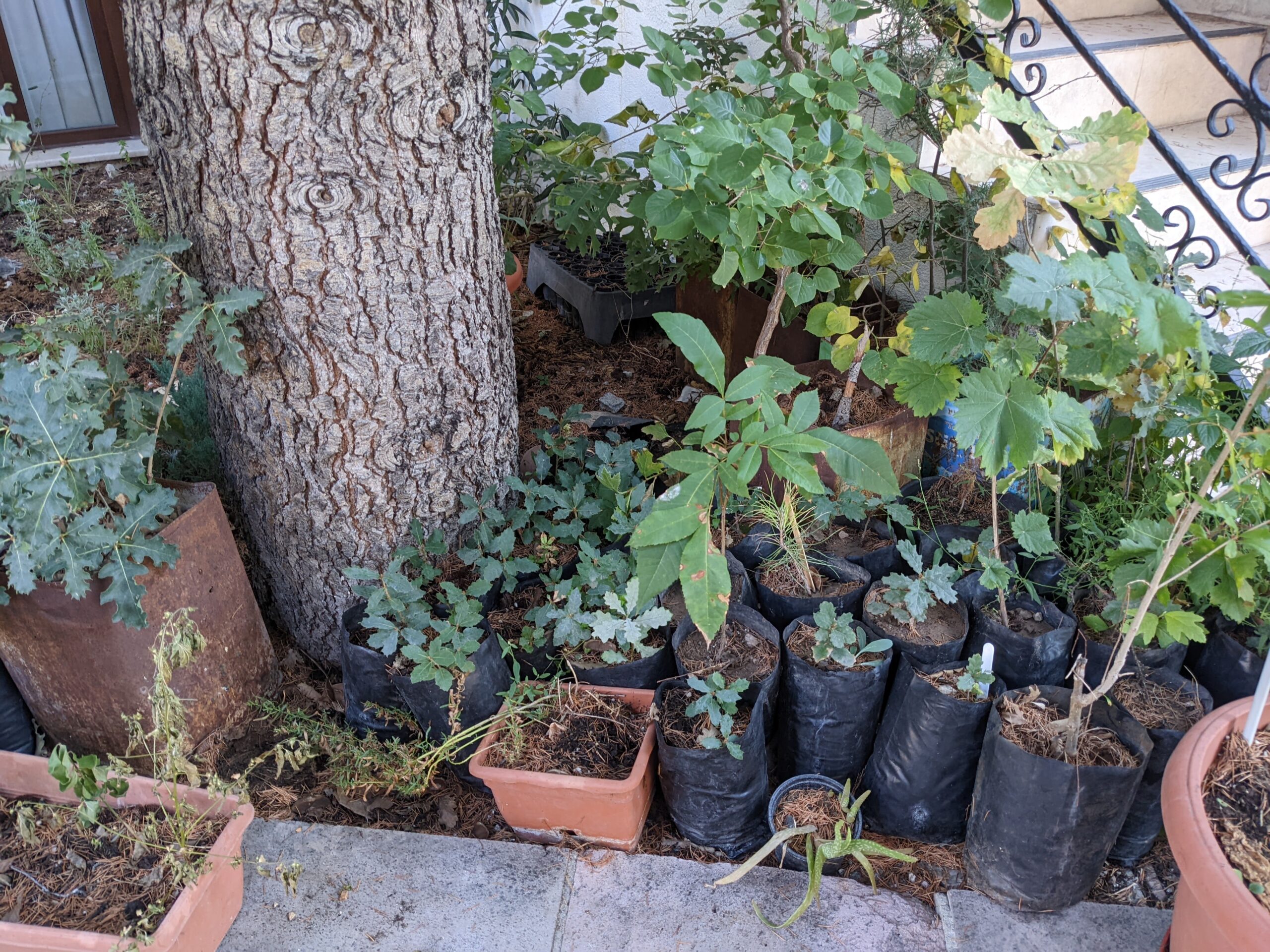
Just a few hundred meters away from his house, we come across the first reforestation site. Already when he was eight years old, Kuzey had nothing but trees on his mind. He wanted tree seeds for his birthday and a forest instead of a playground. And this enthusiasm caught on to his parents and eventually the whole neighborhood. So, they planted more and more trees to the 10 ha empty area, which the neighborhood has rented in the year 2000. At first, they planted pine and cedar just like the Turkish Forestry Department does everywhere. They grow fast and easily. But after a few years, Kuzey learned about the benefits of native trees and started planting them instead. So, when we visit the young forest, we find a mixture of conifers and native trees ranging from just planted to over ten years old. A little oasis and biodiversity hub surrounded by skyscrapers and bare soil. Now, the local community takes joint care of this piece of land. They put a lot of effort and money into creating a natural space in the neighborhood that everyone can enjoy, and what hopefully won´t be subject to the otherwise mushrooming housing complexes in Ankara.

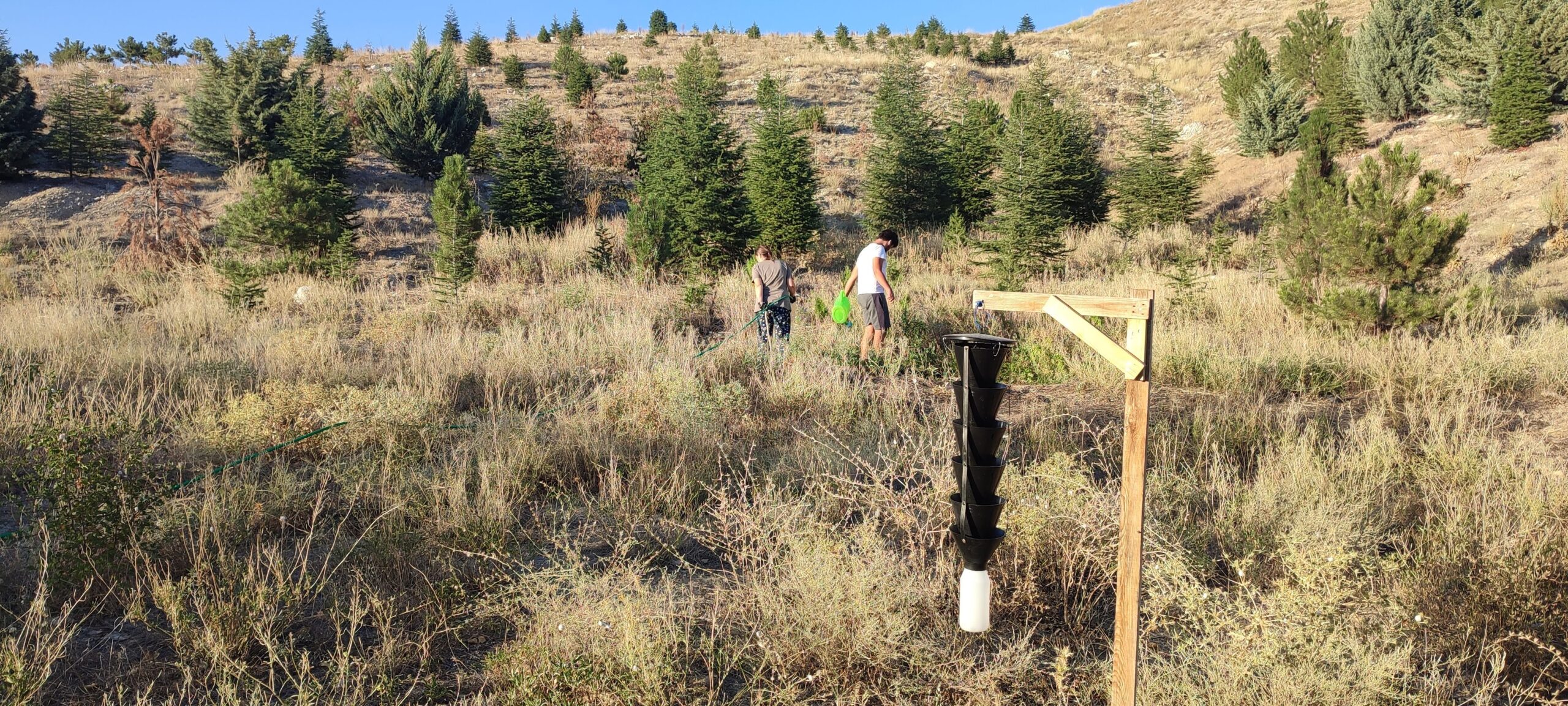

…and being active.
But of all this immediate action is not enough for Kuzey. He is also active in youth and student groups. In an age where most people spend their free time on parties etc., he connects with forest experts, starts initiatives and even tries to influence the planting approach of the Forestry Department. When he heard that we will visit an NGO in Ankara, he even spontaneously joined us to get into contact with them. There is no doubt he will expand his network even more and become a known environmentalist soon. We also covers his activities on social media under the name Restore Anatolia.
I have never met anyone so determined at such a young age. He has endless energy that jumps over to everyone around him. He has initiated several on-the-ground activities and motivated his whole neighborhood to join in. On top, he is already very knowledgeable and realizes how powerful networking is. He is exactly the kind of person we set out to find and he gave us a boost of enthusiasm to find more people like him.
Jonas from Biking4Biodiversity
On top of all of that, Kuzey also grows his own food. If you leave the neighborhood in the opposite direction of the young forest, you will stumble upon his guerilla garden. Because there is not enough space around the house, he simply approached a social project, whether he can an unused patch of land to grow tomatoes, cabbage, beans and more. As his mother says, he has unlimited energy. It is simply incredible how much he has already achieved in his young life and how dedicated he works to achieve even more in the future. We have no doubt he will succeed and contribute to reforesting Central Anatolia.



Excursion: Deforestation in Central Anatolia
The area around Ankara is called the “Central Anatolian Plateau”, a dry hilly plateau around 1000m elevation that is surrounded by mountain ranges from all sides. This limits rainfalls and creates a dry landscape that naturally consists of a mosaic of thin forests and steppe vegetation. Humankind started altering this landscape thousands of years ago by cutting down trees for fire and construction wood and introducing domestic livestock. Today, only small relict forests remain and much land was converted into secondary steppe. It is hard to say how much forest got lost, but it is clear that forests used to cover many times the area they do today.
Authorities have recognized this as an issue and the Turkish Forestry Service actively reforests areas. However, they emphasize profit rather than resilience and biodiversity, so they plant foreign conifer species instead of native trees. The main reason is, conifers are more valuable for the timber industry and grow faster than native species, which are dominantly different species. In addition, natural regeneration is slow and vulnerable because of the climatic conditions and persistent grazing pressure. In some areas of Central Anatolia, precipitation is too low for forest establishment and the natural vegetation is steppe. And sheep are omnipresent as much of the land is too dry for farming. But the numbers are often so high that overgrazing is obvious.


Pingback: Quo vadis, Turkey’s nature? - biking4biodiversity.org